-
YOU ARE
- Community member
- Future Student
- Student
- Professor
- Alumni
- Media
- Guidance counsellors
- INRS retiree
- Contact Us
- Newsroom
- Careers
- FR
-
Studies
We teach the next generation of researchers to develop scientific, social, and technological innovations.
-
Research
We find solutions through interdisciplinary research and industry or public and community partnerships.
-
INRS
We play an active role in Québec's economic, social, and cultural development.

- Home
- INRS
- Equity, Diversity, and Inclusion
- Raising Awareness of Everyday Sexism in Academia
Raising Awareness of Everyday Sexism in Academia
At the initiative of members of the INRS student community, a project was created to document the manifestations of everyday sexism in academia and combat them through awareness-raising tools and activities.
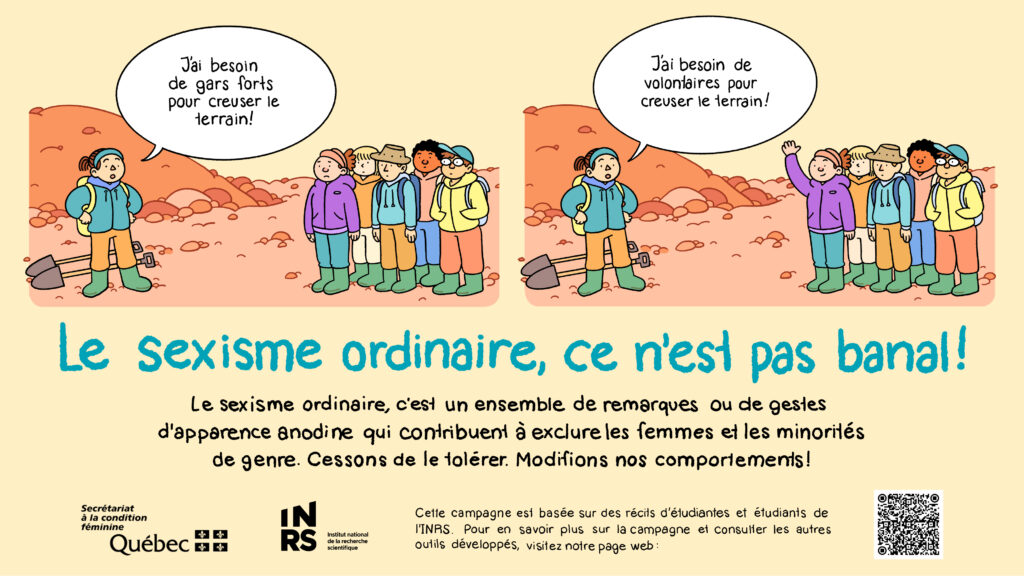
Background
In 2022, members of the INRS community joined forces to fight everyday sexism. This is how the Comité d’action contre le sexisme ordinaire (CACSO) came into being.
The committee was formed by student community members Eve Bernet, Mathilde Broquière, Sarah Cavo, Hermine Counil, Jessica Dozois, Apolline Maurin, and Linsey Yvette Mouatcho, with the support of Equity, Diversity, and Inclusion Advisor Léa Maude Gobeille Paré and INRS social worker Élizabeth Doiron-Gascon.
Thanks to the financial support of Quebec’s Secrétariat à la condition féminine, the committee deployed a three-phase awareness-raising project:
- Organization of workshops to enable members of the student community to share their experiences of everyday sexism. These activities have drawn attention to situations that are often swept under the rug and helped those who experience sexism feel less alone.
- Creation of awareness-raising tools inspired by testimonials from community members, in collaboration with illustrator Sophie Bédard.
- Organization of two conferences on the theme of everyday sexism in the research environment: one on February 8, 2024, with speaker, aerospace engineer, and author Farah Alibay, and the other on April 18, 2024, with Stéphanie Gaudet, professor in the Faculty of Social Sciences at the University of Ottawa.
:
What is everyday sexism?
Everyday sexism is a series of seemingly innocuous comments or actions that contribute to the exclusion of women and gender minorities in day-to-day life. In academia, sexist behaviour creates a hostile environment that hinders women and gender minorities’ opportunities to pursue an academic career. It also undermines their recognition.
Tools
Guide
Facilitation guide everyday sexism is not a trivial matter (pdf)
5 posters
Portrait format for social media
Portrait format for social media
8.5 x 14 pages for printing (French), , 8.5 x 14 pages for printing (English)
Contact us for printed posters (24 x 36)
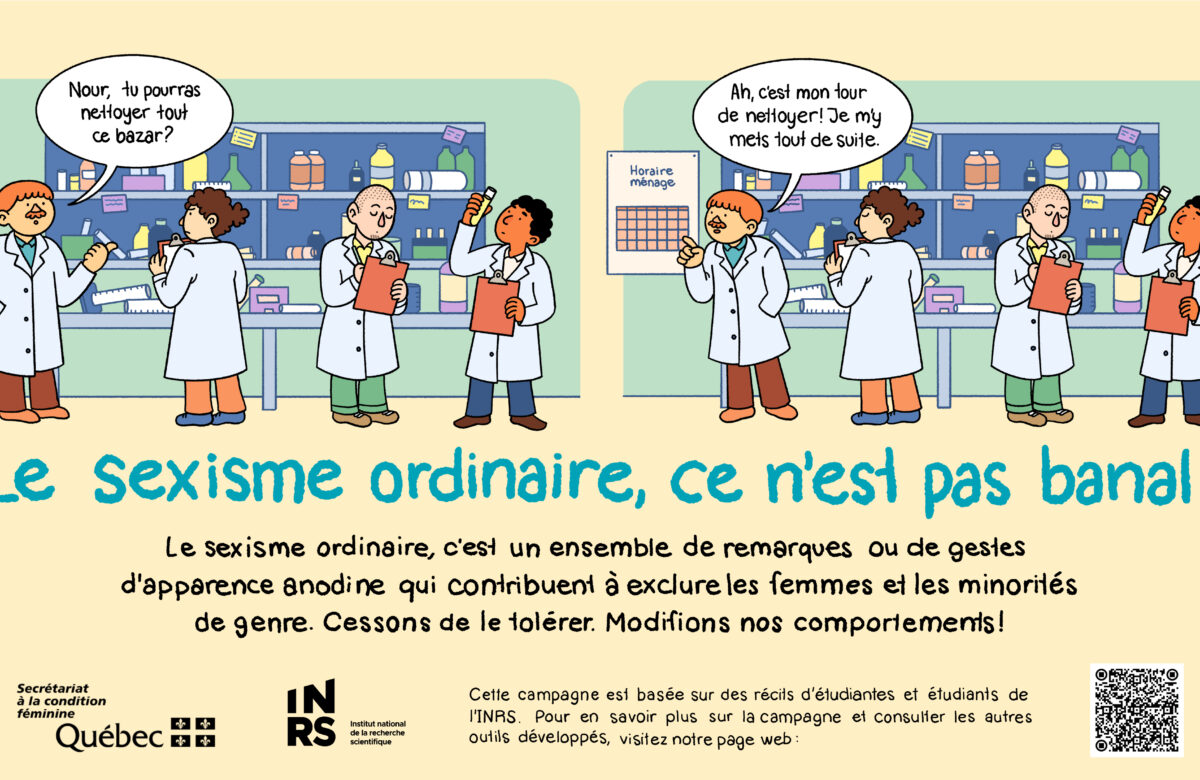
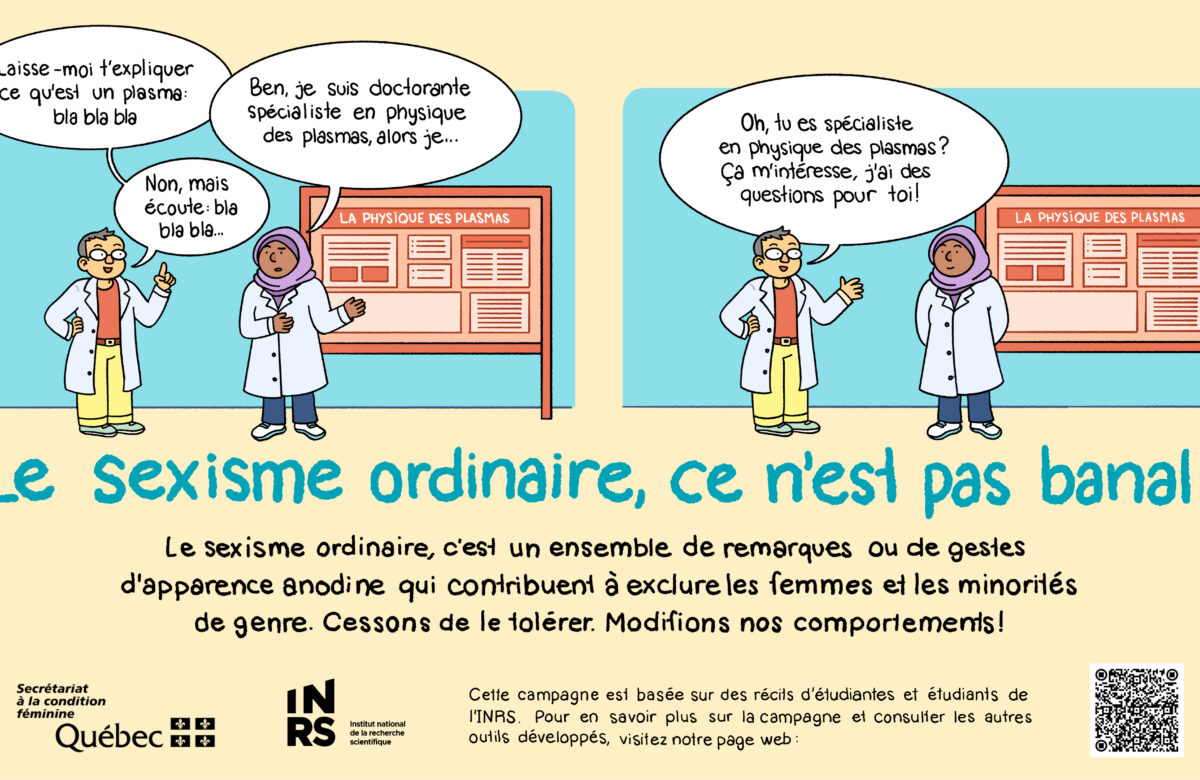
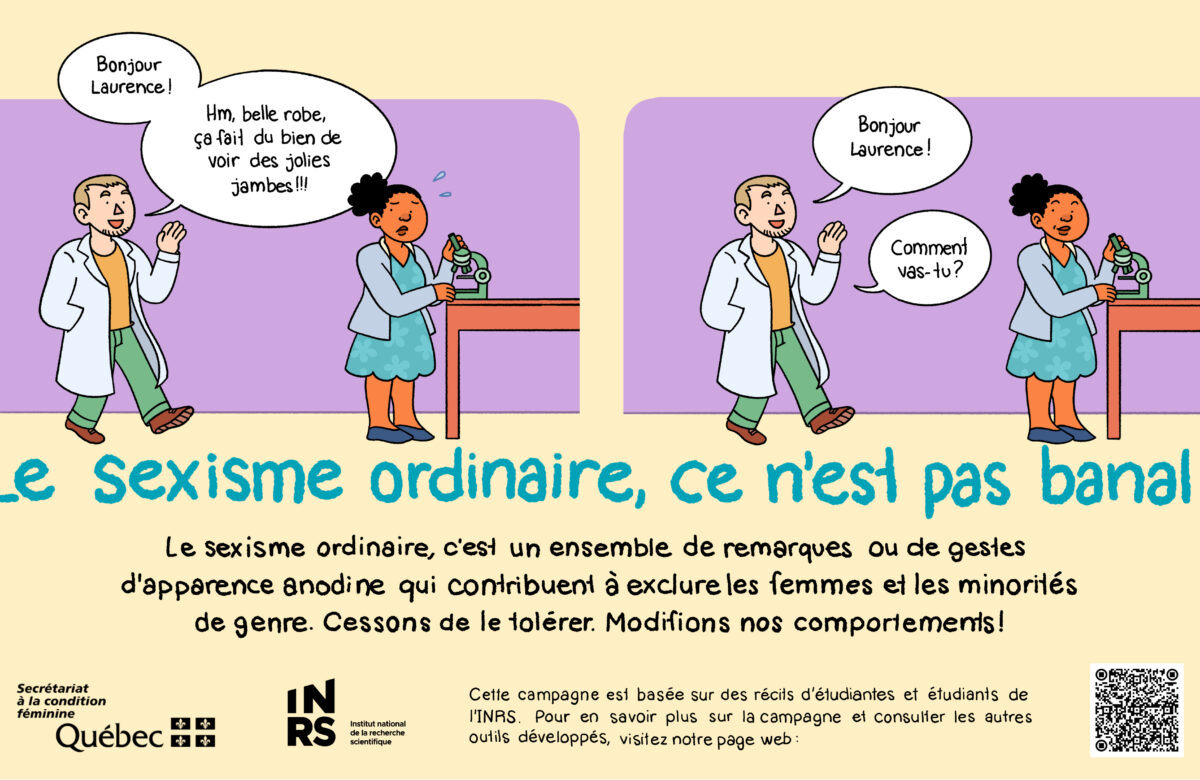
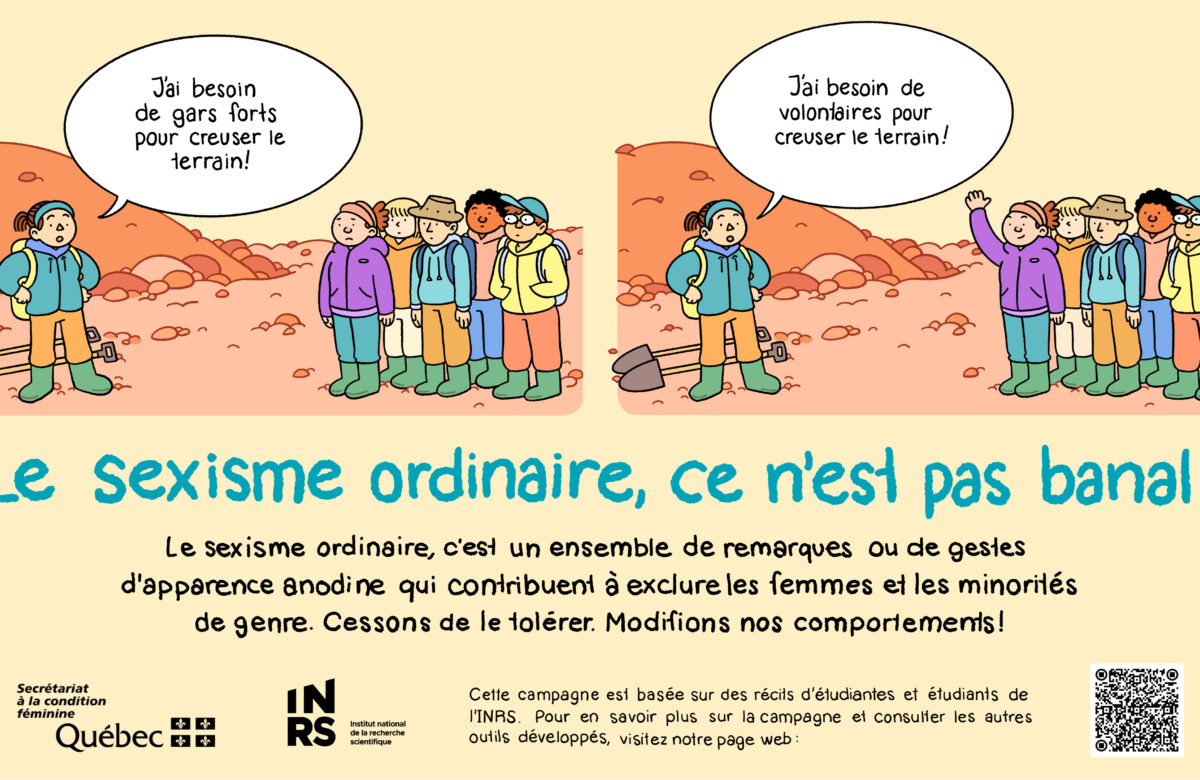
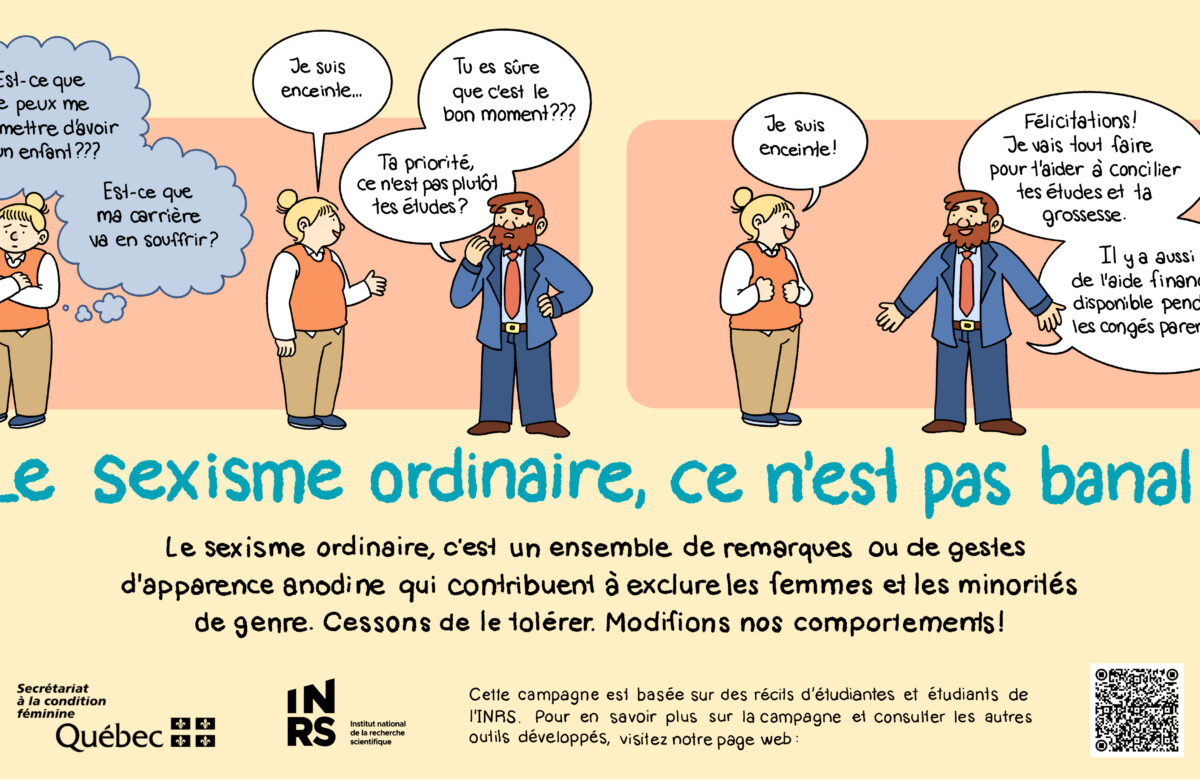
Stay tuned
The working committee is still active and is planning more projects to fight sexism in academia.
This project was made possible thanks to the financial support of Quebec’s Secrétariat à la condition féminine.

